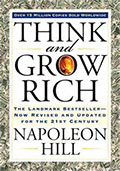Yes, it can!

Its just a matter of developing the mindset of “can” instead of “can’t”
It’s having the mindset skills to look at your business, your role and your targets then think “I can do better”
A dictionary definition of Outperformance is “the act of producing better results in a particular situation than others have done”
I believe that put simply it’s about having the spark of creativity and desire to excel.
Research from the UK* has shown the key factors for Outperformance lay in the culture of the organisation. The extent to which people shared a common purpose, the way they collaborated, and their commitment to continuous improvement.
Most of these factors are internal and rely on a positive culture of investing in people and empowering them to bring the best of themselves to the workplace.
Outperformance was the word that came to my mind after re-reading chapter 12 of Dale Carnegies classic Personal Development book: “How to win friends and influence people”
Charles Schwab * the American Steel magnate had a steel mill manager whose people were producing less than their quota of work.
The manager said he had done everything he could “I’ve coaxed them, pushed them, threatened them with being fired and sworn at them. But nothing works.”
This conversation took place at the end of the day before the night shift came on. Schwab asked the manager for a piece of chalk, then asked the nearest day shift man, “How many heats did your shift make today?”
“six”
Without another word, Schwab chalked a big figure “6” on the floor and walked away.
When the night shift came in and saw the “6” they asked what it meant and were told the big boss was in and asked how many heats we made, and we told him six. He chalked it on the floor.”
The next morning Schwab walked through the mill again. The night shift had rubbed out the “6” and replaced it with a big “7”
When the day shift reported for work they saw the big “7” on the floor. So, the night shift thought they were better than the day shift, did they? Well, they would show the night shift a thing or two. The crew pitched in with enthusiasm, and when they quit that night, they left behind them an enormous, swaggering “10”. Things were stepping up.
An simple example of Outperformance from 110 years ago.
Imagine how a similar 66% improvement in performance would look in your organisation
So, what is the main point of this story, to show how the ability to change thinking and mindset from “can’t” to “can” results in extraordinary performance improvement. As Schwab said: “the way to get things done is to stimulate the desire to excel”
Get in touch today to find out how we can help you create an outperforming team who are motivated, empowered, strive to continually improve and look to achieve their full potential.
Contact us here today https://www.mindstoretraining.com.au/contact/
Reference*:
1) In 2010, André de Waal published a paper called “The Characteristics of High Performance Organisations”. He studied 290 examples of continuous organisational success to identify key themes. Read paper here: https://www.hpocenter.nl/wp-content/uploads/2013/07/Business-Strategy-Series-2007-HPO.pdf



